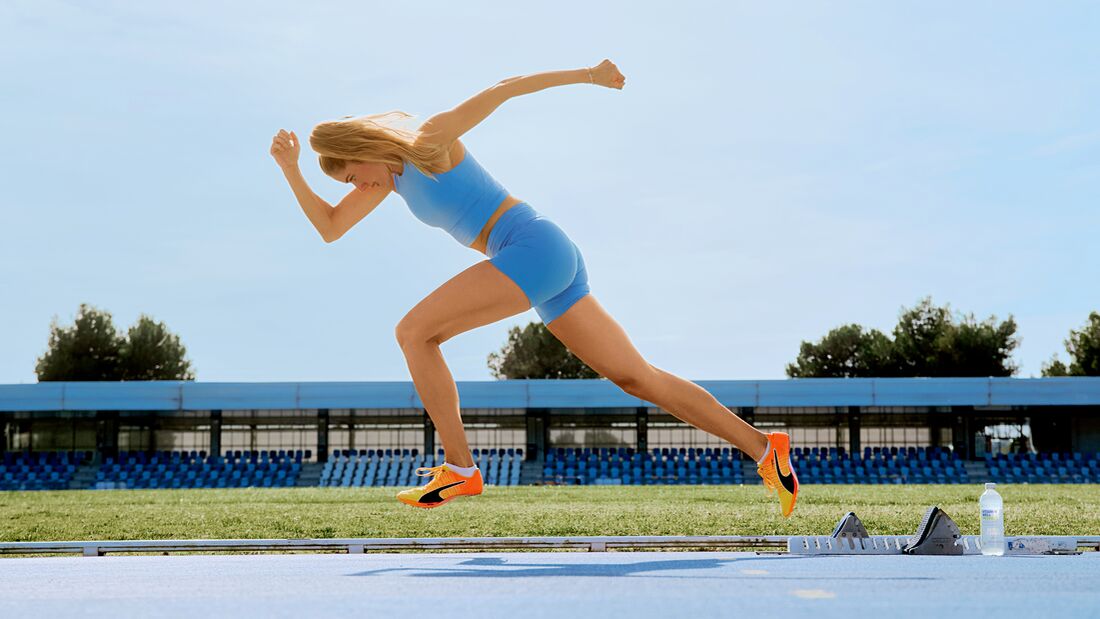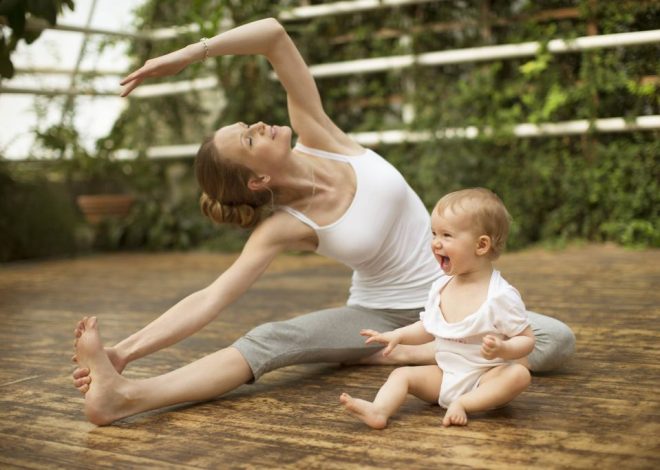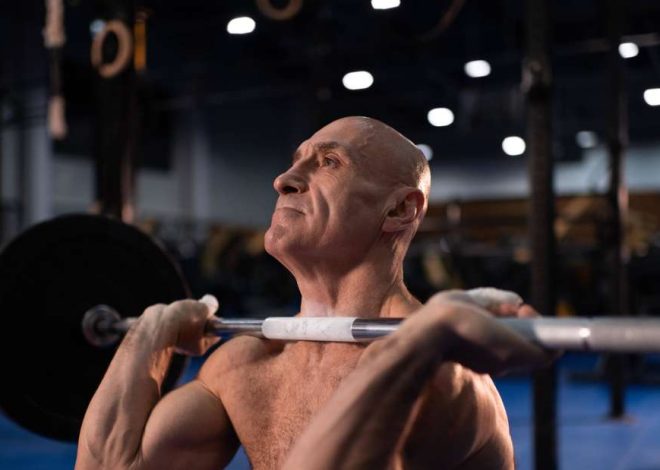
Interview with Olympic star Alica Schmidt
Things are going really well for Alica this season: the athlete is faster than ever on her favorite race, the 400 meters, she has great modeling jobs, advertising campaigns and as @alicasmd she now has more than 5 million followers on Instagram.
And now the Olympic Games in Paris are just around the corner – it’s a lifelong dream for Alica to compete there. And a reason for us to meet her for an interview.
Alica, is the Olympics different from other tournaments?
Yes, you can’t compare it to any other competition. I didn’t realise for a long time how big the difference to a world championship is. Both times the best in the world come together, but at the Olympics every Olympic sport is on site, you live in the same village with the athletes, who all do the same thing, all pursue their passion. That was incredibly inspiring at the Olympics in Tokyo in 2020, I definitely want to experience it again. Especially this time with spectators! The Olympics only take place every four years, so this year is particularly important, I have been working constantly towards this highlight.
What do typical training sessions before a competition look like?
I reduce the intensity a little so that I can start the race refreshed. But I still train every day. Basically, a typical training week is extremely varied. I do sprints, of course, but also sprint endurance, strength and strength endurance training, tempo runs, and jumps. Every day looks a little different, but it repeats itself from week to week, and the same building blocks are always worked through.
Do you spend a lot of time on the track?
Yes! A typical interval unit lasts 3 minutes with 90 seconds of rest each time, and I repeat all of this around 8 times. In total, that adds up to a few kilometers of running. And on the track, I also practice starts and jumps.
Sponsored
How relevant is strength training?
This is very important, sometimes I do 4 to 5 strength training sessions per week. The focus is on the legs, but I also do upper body training and a lot of core training. Every muscle group is covered. My favorite exercise is always the one where I develop the most and see a lot of progress. My all-time favorite: hip thrusts, I’m good at them and can lift a lot of weight.
The more you train, the faster you have to recover. How do you do that?
It is extremely important to make good use of the breaks. The job of an athlete is not finished with training. I have to coordinate everything so that I can perform well again in the next training session. For me, it works best when I lie down in the lymphomat or take an ice bath, and I also go to physiotherapy. Immediately after training, I drink a shake to recharge my batteries. And I make sure I get enough sleep. During intensive training weeks, I need at least 9 hours to be really recovered.
Do you follow a special diet?
I don’t deny myself anything, but I eat very healthily. My day starts with a big breakfast so that I have energy for training. I usually eat porridge, carbohydrates are really important. I take a snack with me when I train because some sessions last 4 hours. After a strenuous workout, I’m totally exhausted and need something easy to digest. My favorite shake is protein powder, banana and peanut butter, all mixed with almond milk. Later in the day, I eat 2 large, balanced and hearty meals that always consist of carbohydrates, good fats and proteins.
Do you really have time off in the off-season?
Yes, but only briefly. After the last race, I go on vacation straight away. That brings relaxation and new motivation. A season is physically and mentally incredibly exhausting, so I need a complete reset. But my feet quickly start to tingle again, then I go running and start with the basics. The units are not specific, though. After 4 weeks, I start targeted training again in order to be able to maintain the high level.
Can you ignore the pressure and enjoy the special spirit?
That’s the art. I was very young in Tokyo and only there as a reserve runner. Nevertheless, it was very important to gain these experiences, to know what to expect and not to be overwhelmed. What helped me was to visualize everything. Every day I sit down for a few minutes and go through what to expect, what I want to achieve. In which situation I have to act how. And that gives me the feeling that nothing new can happen that will throw me off course – and I can actually enjoy it.
Aren’t you nervous anymore?
Yes! It doesn’t work without nervousness, it’s part of it. If I go into a competition and I’m not nervous, it won’t go well. I remind myself that I did everything I could in preparation to be in top shape on the day. And if it doesn’t work out, so be it, because I couldn’t have done anything better. Sooner or later the time will come when it will pay off. That’s why I deal with pressure in a positive way.
How do you motivate yourself again and again?
My biggest motivation is thinking about my goals. And about my training partners. The competition never sleeps, they work just as hard as I do. We also train in a group, which is always nice, it’s more like meeting up with friends where we pursue our passion and work towards the same goal. That’s why there are rarely days when I’m not motivated.
Speaking of competition: Is there more support or envy among women at this high level?
We are of course competitors in a certain way, but on the other hand we are also teammates when we run in the relay. We have all known each other for a long time, sometimes see each other every day, and friendships develop. Of course you also notice a competitive spirit – and that is important. In training we push each other because of it, everyone wants to win, it is a constant battle that makes us all better. But afterwards we shake hands and neither of us is angry or jealous of the other.
And in a race?
Of course, I want to win and I am most happy for myself. But I see how hard the others train and I know what goes through your mind when you reach your goal, so I am happy for others too.
You now have more than 5 million followers – how important is that to you?
I really enjoy social media. I’m trying to hand over a few things so that I can concentrate fully on sport. But I don’t stress myself out at all. I think it’s a mistake to put pressure on yourself to always deliver the best content and be active every day. Nobody feels the same every day and I don’t want to be in front of the camera all the time. That’s why I’m active whenever I feel like it, so it’s still fun for me to bring people into my life. Otherwise I couldn’t be authentic. In my opinion, authenticity is really important to be successful on social media.
Do people recognize and speak to you more often?
Yes, I notice from year to year that more and more people are contacting me. And I’m very happy when I meet the people behind the profiles. I’ve been in contact with some of my followers for years and it’s always nice to get to know someone in real life.
Speed runs through your life. What do you consciously do very slowly?
I enjoy having a slow morning. On days when I don’t have to stress myself out early and leave the house at 7 a.m., I take plenty of time to relax into the day, make tea, have a good breakfast and just sit in peace.
If you didn’t run so fast, what would be your passion?
Definitely a different sport. I tried a lot of things: judo, table tennis, climbing, gymnastics, dancing. I would probably have stuck with dancing, that was what I followed the most, it was a lot of fun. At some point I had to decide what I wanted to do professionally, and I chose athletics. Luckily! I still do it all with a lot of passion. My attention is 100 percent on the sport, I want to be able to leave every training session and every competition and say: “I couldn’t give any more today. If it’s not enough, so be it. Next time I’ll give it my all again.”
Alica Schmidt lives what it means to give everything for sport. Just like you! And that’s exactly why we’re all keeping our fingers crossed for her at the Olympics!
This article may contain links to providers from whom Women’s Health may receive a commission (so-called “affiliate links”). Further information here.

Ethel Purdy – Medical Blogger & Pharmacist
Bridging the world of wellness and science, Ethel Purdy is a professional voice in healthcare with a passion for sharing knowledge. At 36, she stands at the confluence of medical expertise and the written word, holding a pharmacy degree acquired under the rigorous education systems of Germany and Estonia.
Her pursuit of medicine was fueled by a desire to understand the intricacies of human health and to contribute to the community’s understanding of it. Transitioning seamlessly into the realm of blogging, Ethel has found a platform to demystify complex medical concepts for the everyday reader.
Ethel’s commitment to the world of medicine extends beyond her professional life into a personal commitment to health and wellness. Her hobbies reflect this dedication, often involving research on the latest medical advances, participating in wellness communities, and exploring the vast and varied dimensions of health.
Join Ethel as she distills her pharmaceutical knowledge into accessible wisdom, fostering an environment where science meets lifestyle and everyone is invited to learn. Whether you’re looking for insights into the latest health trends or trustworthy medical advice, Ethel’s blog is your gateway to the nexus of healthcare and daily living.



